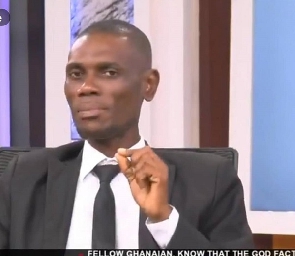The Global Security for Africa Research and Good Governance (GLOSARGG) has warned the Electoral Commission (EC) to reverse the idea not to use indelible ink in elections.
Before the district-level elections in December 2024, the EC announced that there would be no need for indelible ink in elections anymore.
The ink is a semi-permanent dye applied to voters' fingerprints to indicate who has voted and that is what Ghana has used for ages, however, the chairperson, Jean Mensa said the Commission would now use a new technology, a biometric machine.
The machine is designed to allow a voter to vote once and the system will automatically detect and prevent double-voting.
Francis Ahovi, Executive Secretary of GLOSARGG engaged with some journalists to mark the end of 2023 and spoke on Ghana's political journey.
According to him, EC's decision not to use indelible ink is not politically and electoral friendly.
"The EC's opinion not to use the indelible ink during the General Elections is another avenue to deepen the already existing untrustworthy and electoral fraud in Ghana".
He added "Even with indelible ink, some unscrupulous voters still do multiple voting for their parochial gains, if the proposal of the EC is not well thought through, could be suicidal and probably leave some indelible doom on the fortunes of our electoral system. Hence, must be avoided"
Francis Ahovi alleged that the EC has an agenda to favour a particular political party in the 2024 elections.
"In furtherance, this truncation of the indelible ink could play to the advantage of a political party that feels is losing the elections based on its abysmal performance and undemocratic governance and could only vote multiple times in or to augment its figures, especially to attain the 50 plus 1 percent as stipulated by the Ghanaian Constitution".
He concluded by saying "In a nutshell, since there is no indication to publicly show that one has already cast his or her vote, the possibility of casting multiple votes is very high."
Politics of Tuesday, 2 January 2024
Source: Albert Gooddays, Contributor

















